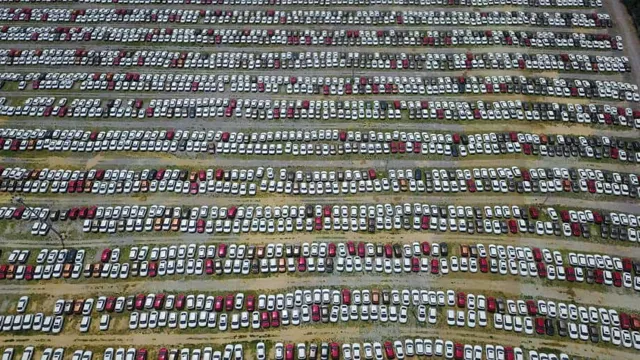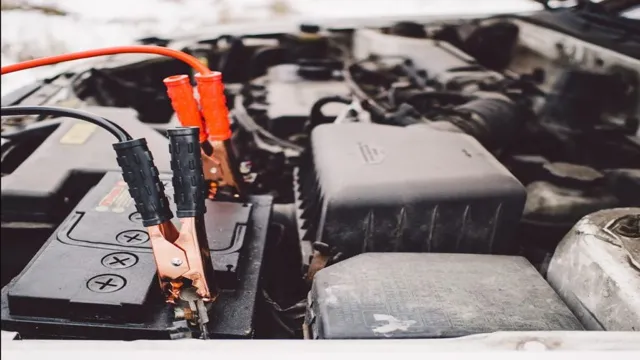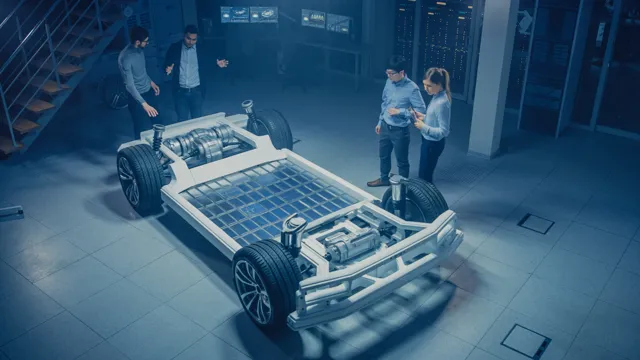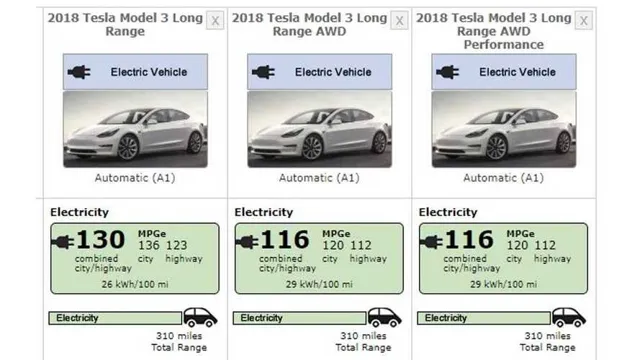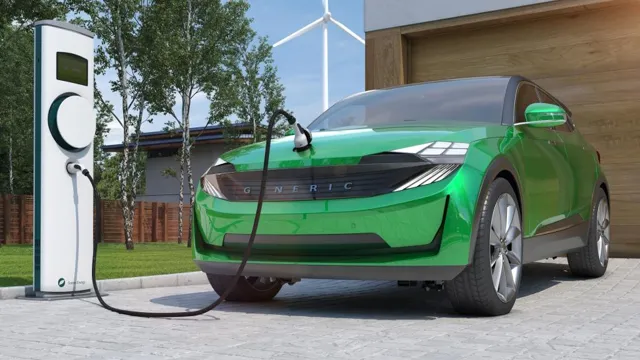Electric Car Battery Glut: What it Means for the Future of Sustainable Transportation
As concerns surrounding climate change and the environment continue to grow, many people are turning to electric cars as a more sustainable mode of transportation. However, with the increasing demand for these vehicles comes a new problem: an electric car battery glut. This glut refers to an oversupply of batteries due to manufacturers producing more than the market can absorb.
So, what causes this glut, and what can be done to solve it? In this blog post, we’ll explore the reasons behind the electric car battery glut and discuss potential solutions that could help alleviate the issue.
Global Oversupply of Lithium-ion Batteries
The electric car battery market is experiencing an oversupply of lithium-ion batteries, resulting in a glut that cannot be easily absorbed. The global supply of electric car batteries has been increasing at a rapid pace, and this trend is set to continue in the coming years. While this is good news for the environment and the wider adoption of electric vehicles, it poses a key challenge for manufacturers who are struggling to find ways to dispose of or recycle used batteries.
This oversupply has resulted in lower prices for batteries, which is good news for consumers, but it is putting serious pressure on manufacturers to scale back their production. Some experts are suggesting that manufacturers need to think more creatively about how to use these batteries, perhaps by repurposing them for other applications, such as home energy storage systems. Despite the challenges, the electric car battery market is poised for significant growth in the years to come, and we can expect to see more innovation and creativity in the industry in the near future.
Analysis of the Growing Demand for EVs
The demand for electric vehicles (EVs) has been growing rapidly in recent years, driven by concerns about climate change and the desire for sustainable transportation options. However, this increase in demand has also led to a global oversupply of lithium-ion batteries, which are essential components of EVs. This oversupply has resulted in a decrease in the price of batteries, making EVs more affordable for consumers.
Additionally, it has incentivized the development of new technologies that can improve the efficiency and affordability of EVs. As a result, manufacturers are ramping up the production of EVs, and governments around the world are implementing policies to encourage their adoption. The shift towards EVs is not without challenges, but the oversupply of batteries is helping to make them a more viable alternative to traditional fossil fuel-powered vehicles.
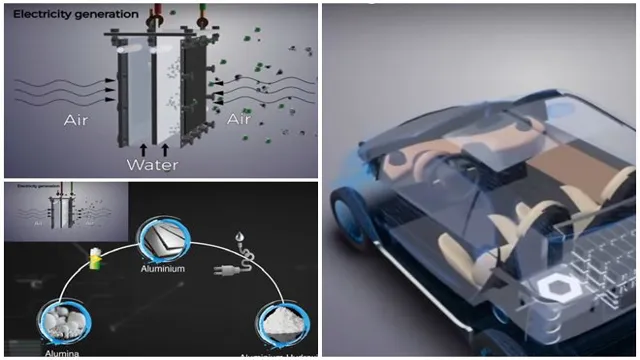
Comparison of Battery Production vs. EV Sales
One of the most pressing issues in the world of electric vehicles (EVs) is the global oversupply of lithium-ion batteries. Despite the fact that battery production has increased tremendously over the past few years, there has been a significant gap between battery production and EV sales. This has resulted in an oversupply of batteries, which has driven down prices and made it difficult for battery manufacturers to maintain profitability.
The demand for EVs has grown at a slower rate than expected, partially due to a lack of charging infrastructure and high costs. To combat this oversupply, manufacturers are focusing on research and development to create better-performing batteries that will be more appealing to consumers. Additionally, some manufacturers are turning to other industries, such as energy storage, to make use of their excess battery supply.
While this oversupply presents challenges for battery manufacturers, it ultimately benefits consumers by driving down prices and increasing access to EVs.
Implications for Auto Industry and Consumers
The rise of electric vehicles has brought with it a new set of challenges for the auto industry. While the concept of sustainable and eco-friendly transportation is gaining popularity, there is a growing concern about the electric car battery glut. This refers to the overproduction of batteries, spurred by manufacturers’ eagerness to capitalize on the hype of electric cars.
However, given that these batteries can last up to a decade, there has been a slower adoption rate of electric vehicles. This has left many manufacturers with excess battery stock, leading to a surplus that has contributed to the glut. While this has caused concerns for some investors, it can be also seen as an opportunity for the wider market to capitalize on these lower prices and increase EV adoption rates.
With EV models becoming increasingly popular, it’s clear that the industry needs to address the glut to ensure a sustainable future for all.
Decrease in Battery Prices and Its Benefits to Consumers
The decrease in battery prices has caused a significant change in the auto industry and benefited consumers. With advances in battery technology and mass production, the cost of batteries used in electric vehicles (EVs) has decreased by over 80% in the last decade. As a result, EVs have become more accessible to the general population, and the demand for them has increased.
Consumers can now purchase EVs that have similar or even lower costs than traditional gasoline cars. This decrease in battery prices has also led to a decrease in the cost of owning and maintaining an EV. The maintenance costs of EVs are lower than traditional gasoline cars, as they have fewer moving parts and require less frequent oil changes and brake replacements.
Additionally, EVs have a longer lifespan and retain their value for longer periods due to the durability of the battery and the lower maintenance costs. The auto industry has taken notice of this shift, and many manufacturers have expanded their EV lineups or even shifted entirely to making EVs. Tesla’s success has prompted other companies to enter the market, such as Rivian and Lucid Motors.
Governments have also incentivized the transition to cleaner transportation by offering tax credits and rebates for the purchase of EVs. In conclusion, the decrease in battery prices has had a positive impact on both consumers and the auto industry. Consumers have benefited from the affordability and decreased operating costs of electric vehicles, while the auto industry has seen a shift in production towards cleaner transportation.
As more companies continue to invest in EV manufacturing, the future looks promising for cleaner and more sustainable transportation.
Innovating Solutions to Avoid Battery Glut
The increasing production of electric vehicles has led to the development of advanced battery technology, and with it, the possibility of a battery glut. However, the auto industry and consumers alike need not worry, as innovating solutions are already underway. For starters, recycling and reusing old batteries can help minimize waste and reduce overall costs.
In addition, manufacturers are looking into more sustainable materials, such as solid-state batteries that are safer, more efficient, and easier to produce. These measures not only address the issue of battery waste but also offer benefits to the environment and the economy. In the end, the auto industry and consumers stand to gain from these innovations, providing a brighter and more sustainable future.
Factors Affecting the Electric Vehicle Market
The electric vehicle market is gaining traction, and there are a few factors pushing it forward. One essential aspect is the advances in battery technology, which are making electric vehicles more accessible to the average consumer. Additionally, governments are becoming more invested in promoting renewable transportation options, providing incentives such as tax breaks, subsidies, and infrastructure development.
However, there are still some challenges that manufacturers need to address before mass adoption can occur, such as the high costs of electric vehicles and the limited range on a single charge. Despite these challenges, the shift towards electric vehicles has significant implications for both the auto industry and consumers. From reduced carbon emissions to potential cost savings in fuel and maintenance, electric vehicles offer a sustainable and convenient solution for transportation needs.
So, it’s no surprise that interest in electric vehicles is growing rapidly, with more and more consumers considering making the switch to sustainable transportation options.
Potential Solutions for the Battery Glut
The electric car battery glut has been causing concern in the industry, but there are potential solutions being explored. One approach is to repurpose used batteries for second-life applications, such as energy storage for homes and businesses. This not only creates a new market for the batteries but also helps to address the issue of energy storage for the growing renewable energy sector.
Another solution being looked into is finding ways to improve the lifecycle of batteries through better design and technology, such as using more durable materials or optimizing the charging and discharging processes. Additionally, automakers are also investing in the development of more affordable electric cars, which could increase demand for batteries and reduce the glut. These efforts, combined with ongoing research and innovation, could help to alleviate the current battery glut while also driving the transition to more sustainable transportation.
Investing in Energy Storage Systems
Investing in energy storage systems is becoming a popular trend in the renewable energy sector, but with the current battery glut, potential solutions are needed to ensure their sustainability. One potential solution is to repurpose retired electric vehicle batteries for energy storage. Since EV batteries still hold a significant amount of their original capacity even after being retired from vehicles, they could be refurbished and reused in energy storage systems.
Another solution is to focus on developing new battery technologies that are more efficient and have longer lifespans. This would not only decrease the current battery glut but also improve the overall performance and sustainability of energy storage systems. As demand for renewable energy continues to increase, finding solutions for the battery glut is crucial to ensuring a smooth transition towards a more sustainable future.
Collaboration with Renewable Energy Companies
As the world continues to shift towards renewable energy, more and more companies are looking to collaborate with renewable energy companies, including those involved with batteries. One potential solution for the battery glut is to work with these companies to find innovative ways to recycle and repurpose these batteries. By doing so, we can help reduce the amount of waste produced and extend the lifespan of these batteries, leading to a more sustainable future.
Additionally, collaboration can also help accelerate the development of new and improved batteries, which could further reduce our reliance on fossil fuels. In order to make this a reality, it’s important for renewable energy companies and battery manufacturers to work together closely to identify areas of synergy and build lasting relationships. By doing so, we can help create a more sustainable future for us all.
Conclusion and Future Outlook
In the world of electric vehicles, it seems we’ve gone from scarcity to surplus. The electric car battery glut may have some scratching their heads, but it’s ultimately a good problem to have. The rise of electric vehicles has created a demand for batteries, leading to more investment in battery production and ultimately an oversupply.
While this may mean cheaper prices for consumers, it’s also encouraging more innovation in the industry to find ways to use these batteries to power everything from homes to grid networks. It just goes to show that sometimes, having too much of a good thing can be a catalyst for even more growth and progress.
FAQs
What is an electric car battery glut?
An electric car battery glut is a situation where there is an oversupply of electric vehicle batteries in the market.
Why is there an electric car battery glut?
The electric car battery glut is caused by the increase in production of electric vehicles and the decrease in demand due to factors like COVID-19 and reduced government incentives.
What are the effects of the electric car battery glut?
The electric car battery glut may lead to a price war among battery manufacturers, causing prices to drop and companies to go bankrupt.
Will the electric car battery glut affect the adoption of electric vehicles?
The electric car battery glut may actually benefit the adoption of electric vehicles by making them more affordable and reducing the cost barrier for consumers.
